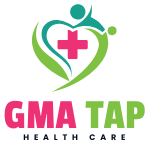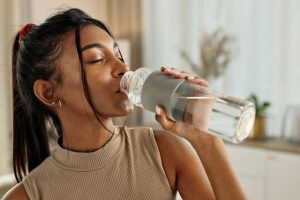To combat dehydration, aim to consume nine to 13 cups of fluid daily – water and unsweetened herbal tea are excellent choices; broths and soups that are low in sodium may also help.
Avoid energy drinks that contain excessive caffeine levels and other stimulants that may overstimulate your body.
1. Boosts Energy Levels
Hydration is key for optimal cognitive performance. Cognition encompasses judgment, memory, focus and concentration (39) (Booth).
Under-hydratation can result in numerous symptoms that interfere with cognitive function, including headaches, dizziness, fatigue and difficulty focusing. Studies have also demonstrated how dehydration can make someone feel unmotivated even after replenishing fluid reserves.
To counter these effects, it’s recommended that adults drink eight glasses of water daily – or use an easy formula like taking one-third of your body weight in fluid each day as a guideline. Keep a water bottle with you during physical activity or hot weather and opt for low-cal beverages like coffee, tea or sparkling water as needed – keep kids and teenagers hydrated by providing meals or snacks with water and sending a reusable water bottle with them to school activities or meetings.
2. Reduces Fatigue
Dehydration can make it harder to focus, which is why both adults and children must drink enough water throughout the day to remain properly hydrated. Studies show that being well hydrated reduces feelings of fatigue.
Athletes must take extra precaution to consume enough fluids as their bodies become dehydrated from sweating and increased energy expenditure. Aiming for four hours prior to exercise as an ideal starting timeframe for drinking sufficient amounts, athletes can ensure proper hydration levels that can support optimal performance and avoid dehydration.
One study showed that participants who were highly-thirst performed better on cognitively demanding tasks than those who were low-thirst, with women reaping greater rewards from staying properly hydrated than men due to female hormones’ effect on body fluid regulation.
Staying hydrated not only supports our bodies’ natural detoxification systems but can help alleviate symptoms associated with chronic diseases such as heart failure, diabetes and chronic lung disease.
4. Improves Memory
Studies have consistently shown that when people are adequately hydrated, they are better able to learn and remember. This is due to adequate water aiding the transmission of electrical and chemical signals in the brain; when these processes slow down due to insufficient supplies, cognitive impairment results.
Studies that gave participants water to drink prior to cognitive ability tests demonstrated that those who consumed water performed significantly better. Hydrated individuals scored higher on tests of visual memory, working memory and mental flexibility compared to dehydrated ones.
Though these results are encouraging, the available research on this subject is limited and making conclusions from existing evidence is challenging. Further investigation should focus on older adults and children known to experience difficulty controlling fluid due to sexual hormones.
Hydration is of vital importance in all populations, but especially important for children and teens participating in youth sports or outdoor recesses, as well as college students spending long class periods without access to drinking water. Make sure they always have access to clean drinking water with the Primo water dispenser in both home and school environments.
5. Reduces Stress
Water can provide energy as well as soothing relief from stress. Drinking more water also improves concentration and memory while helping prevent dehydration which causes many of the same symptoms as stress – headaches, fatigue and irritability among them.
Recent research revealed that high-thirst participants performed better on cognitively demanding tasks when properly hydrated than when dehydrated; low-thirst participants, on the other hand, made more errors during these same tests when dehydrated.
Researchers found that low fluid intake was associated with suboptimal hydration status, as evidenced by higher urine osmolality (UOsm) and color (UCol) scores among low fluid-intake participants during the days leading up to and on test day of TSST; UOsm/UCol levels also correlate with greater cortisol reactivity upon acute psychosocial stress exposure.
Make sure that, along with water, your daily beverage intake includes other nutritious beverages like low-calorie tea and coffee, 100% fruit juice, nonfat milk and herbal teas. Avoid high-calorie soda, energy drinks and sports drinks which often contain added sugars and calories.




